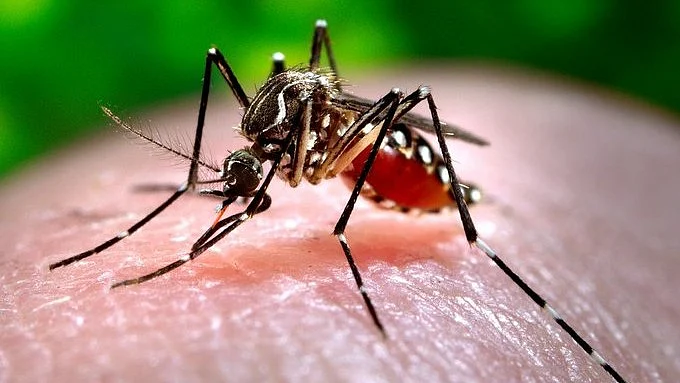With over five cases of West Nile fever being reported in Kerala's three districts including Kozhikode, Malappuram and Thrissur, Kerala Health Minister Veena George urged all the district authorities to be vigilant and issued directives to take mosquito control measures ahead of the monsoon.
As per media reports, Kozhikode district collector Snehil Kumar Singh said, “Of the five cases reported so far in the district, four have recovered, and one is currently under treatment in the government medical college hospital."
What is West Nile fever?
The West Nile fever is a mosquito-borne disease caused by the West Nile virus (WNV). It is most commonly transmitted through the bite of an infected mosquito, according to the Centers for Disease Control and Prevention (CDC).
According to the US health watchdog, the cases of WNV occur during mosquito season, which starts in the summer and continues through fall.
About the disease transmission
The West Nile fever is primarily transmitted by the Culex species of mosquitoes. As per reports, the West Nile virus is most commonly spread to people by the bite of an infected mosquito. Mosquitoes become infected while feeding on infected birds. According to the experts, the West Nile virus is capable of causing fatal neurological disease in humans. Most of the infections are reportedly asymptomatic.
Back in 1937, the disease was first detected in Uganda and in India, the fever was first detected in Kerala in 2011.
According to CDC, “Infected mosquitoes then spread West Nile virus to people and other animals by biting them. In a very small number of cases, West Nile virus has been spread through, the exposure in a laboratory setting, blood transfusion and organ transplant, mother to baby, during pregnancy, delivery, or breastfeeding."
What are the symptoms?
The major symptoms of the disease include the following:
high fever
headache
neck stiffness
stupor
disorientation
tremors
convulsions
muscle weakness
vision loss
numbness
paralysis.
“Severe illness can occur in people of any age. However, people over 60 years of age are at greater risk for severe illness if they are infected (1 in 50 people). People with certain medical conditions, such as cancer, diabetes, hypertension, kidney disease, and people who have received organ transplants, are also at greater risk," CDC noted.
Treatment, cure, recovery
According to the CDC notification, there are specific vaccine or medications available to cure the West Nile virus infection. One of the possible line of treatment or mild infections includes administration of over-the-counter (OTC) pain relievers to reduce fever and relieve some symptoms.
In severe cases, patients often require hospitalisation and access to supportive treatment including intravenous (IV) fluids, pain medication, and nursing care.
Recovery from severe infection from West Nile virus generally takes several weeks or months. Some effects to the central nervous system might be permanent. About 1 out of 10 people who develop severe illness affecting the central nervous system die, according to CDC.













.png?auto=format%2Ccompress&fit=max&format=webp&w=376&dpr=2.0)













